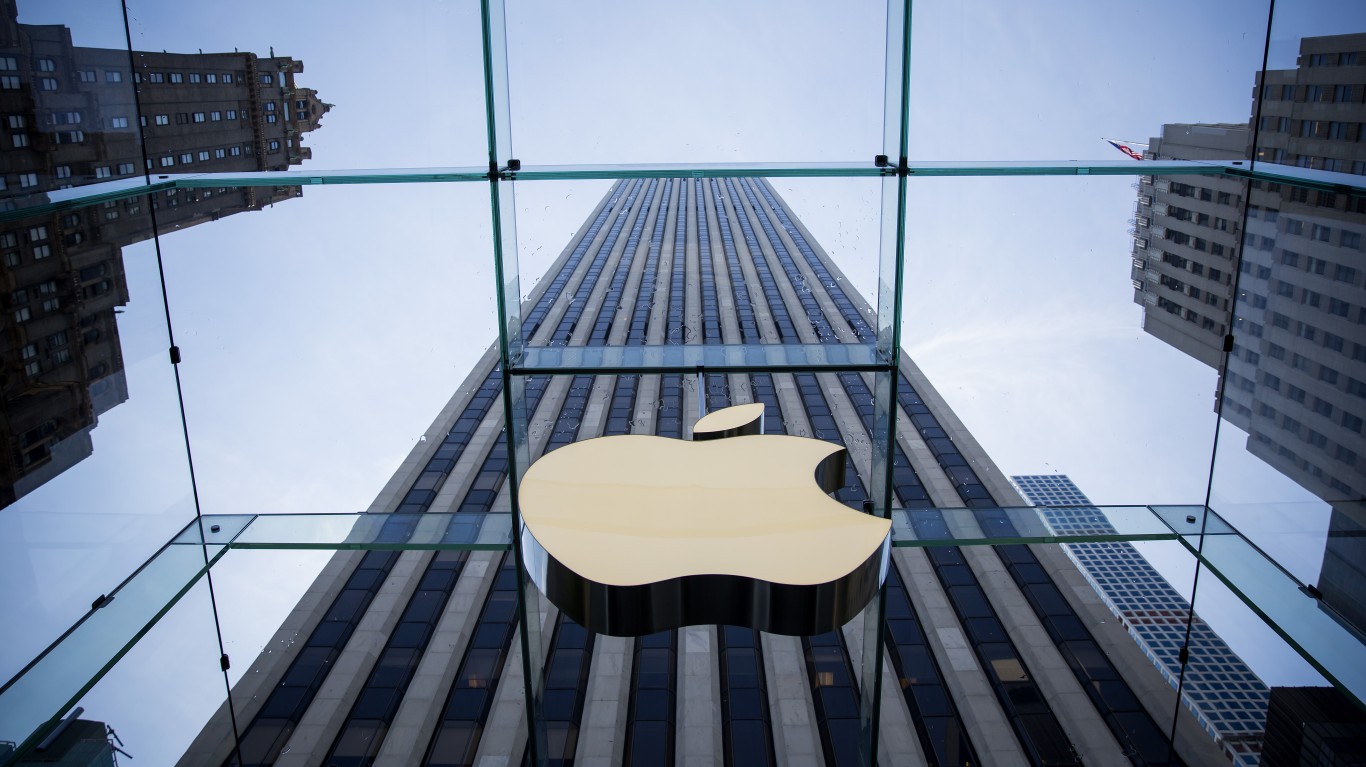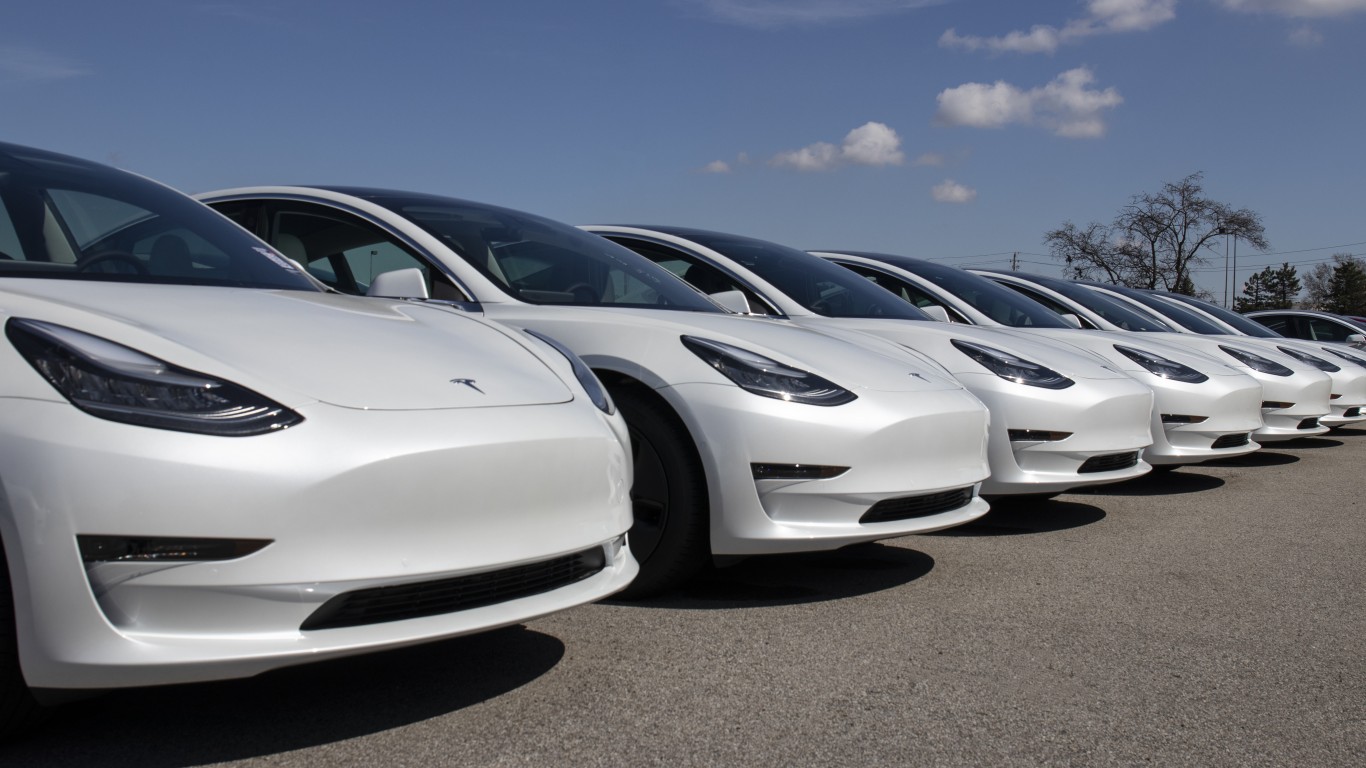
Two bits of news Tuesday stirred the electric vehicle pot more than usual. First, Reuters reported exclusively that Apple Inc. (NASDAQ: AAPL) is targeting 2024 to begin manufacturing an all-electric, self-driving vehicle. Later in the day, Tesla Inc. (NASDAQ: TSLA) tweeted out that Apple CEO Tim Cook refused to meet with Musk to discuss an Apple acquisition of Tesla “during the darkest days of the Model 3 program.”
[in-text-ad]
Apple launched an automotive program called Project Titan in 2014 to develop an EV of its own design. After narrowing its focus to the software needed to produce a vehicle, the company in 2019 pared some 190 people from the project.
According to Reuters’ sources, Apple has now decided to seek partners for some major components of a self-driving EV, such as the lidar sensors, while developing its own battery technology. In the end, though, there are a lot of reasons why an iCar is a bad idea.
The auto industry is extremely expensive. According to a report in Barron’s, Volkswagen has spent nearly $180 billion on manufacturing plants and equipment over the past 10 years. VW’s operating profit margin over that time period is about 7%. Apple, which has spent around $100 billion on plant and equipment over the same time span has an operating profit margin of around 28%. Investing a massive pile of cash in order to earn a smaller margin is not usually a winning idea.
Apple already has returned some $500 billion to shareholders in dividends and share buybacks, the largest capital return of any U.S. company ever. Its goal is to become cash neutral, and at the rate it is going, that is likely to happen sometime in 2023. After that, dividends will be paid out of cash flow. Without halting that cash return, even Apple will have a hard time financing an auto manufacturing operation. Investors are unlikely to respond well to an end to the company’s cash return plan.
If profit margins for automobile manufacturing are going to be a quarter of what they are for making iPhones, Macs and software, how will that affect Apple’s valuation? Currently, the company trades at a multiple of around 6 to estimated 2021 sales. Tesla, with a market cap of more than $600 billion, trades at a multiple of 13 to estimated 2021 sales.
Given the issue with margins, the other way to boost valuation is growth, and there’s little question that the market for EVs is growing. EVs currently account for only 3% of all new vehicles sold. By 2025, one estimate has EV’s accounting for 30% of all new vehicle sales. Analysts at Loup Ventures expect Tesla to hold about one-third of the global market for EVs at the end of that five-year period.
[in-text-ad]
Global sales totaled around 86 million units in 2019 and are forecast to fall to around 70 million this year. If sales recover to around 90 million in 2025, 30 million of those vehicles will be EVs, and Tesla, which has forecast 500,000 unit sales for this year, is expected to sell 10 million of those. Volkswagen, the world’s largest carmaker by unit volume, manufactures some 11 million vehicles a year. If Apple begins to deliver EVs in 2024, it will face a slew of competitors as it carves out space in the market, although even the idea of an Apple-branded EV could send chills up the spine of Tesla investors.
The biggest thing that Apple has going for it, should it decide to get into the transportation business, is its brand. However, can the company use that as a lever to separate consumers from $30,000 instead of $1,000 for a new iPhone?
As Morgan Stanley auto industry analyst Adam Jonas told Barron’s: “Apple may have an interest in enhancing the driving experience with vertical integration of hardware, software and services.” If Apple chooses to go that way, the company avoids the low-margin, capital-intensive auto manufacturing business.
Even then, is the effort worth the reward? If Apple doesn’t build the cars (or have the final voice in what the hardware needs to provide), it doesn’t control the vertical integration that Jonas sees as the company’s opportunity.
The Reuters report boosted Apple stock by nearly 3% on Tuesday, but the shares traded up only fractionally Wednesday morning, at $132.02 in a 52-week range of $53.15 to $137.98. The price target on the stock is $127.11.
Tesla stock traded down about 1.5% on Tuesday and was up about 0.8% Wednesday morning to $645.37. The 52-week trading range is $70.10 to $695.00, and the consensus price target is $411.53.
Thank you for reading! Have some feedback for us?
Contact the 24/7 Wall St. editorial team.



